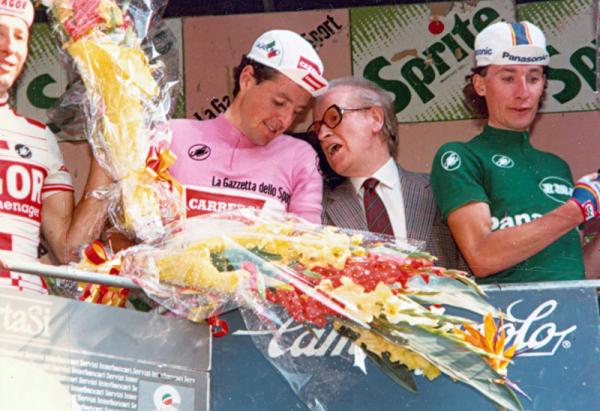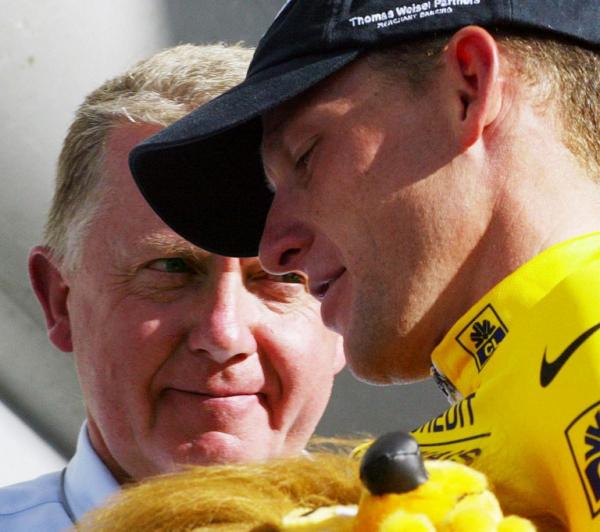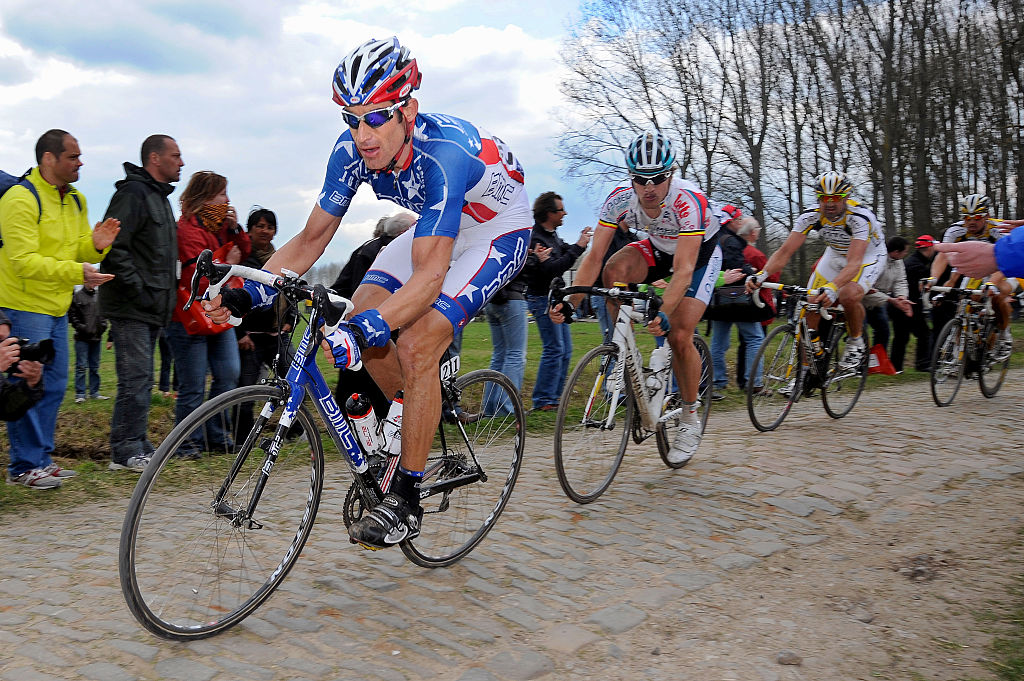The Bare Minimum
Robert Millar on the UCI, Armstrong and the mismanaging the EPO era
The latest race content, interviews, features, reviews and expert buying guides, direct to your inbox!
You are now subscribed
Your newsletter sign-up was successful


This Monday it was the UCI's turn to be stood in between the rock and the hard place. Ironically, in a dilemma not that different to the one faced by Tyler Hamilton and Co years ago, the UCI faced a decision which was going to be criticised whatever they did. So they did what they have been doing for too long now: they produced the bare minimum, they gave the political answers, dodged the hard questions and hid behind USADA's reasoning. Realistically, they had no choice but to accept the evidence put before them because any other challenge or inspection opened them up to even more criticism. And yet by doing the minimum those questions will still come. We still want the answers to the questions they don't want to hear.
The UCI can deny there was any link between the Armstrong donations and the suspicious test results and Pat McQuaid can try to place all the blame onto the riders for the blood doping and EPO abuse but everyone is beginning to see beyond that defence. The "It wasn't me it was them that did it" excuse has already been made famous by Virenque during the Festina affair and we all know how that one turned out .
1998 was the warning that the 50% limit chosen by the UCI two years earlier was an open invitation to dope to that level. The teams of the period, as teams had always done, expected the rules to be pushed and organised themselves as they thought fit. The UCI said it was 50% to protect riders’ health and just ignored the sudden emergence of the 75kg climbers. Festina were the unlucky ones as it could have been any of the teams – any one of them – and the bizarre strike of that year’s Tour just confirmed it. They weren't protesting that they were being cheated by Festina, they were protesting that their world had been found out.
At the last Tour de France I rode, a quick poll of my friends and colleagues in the peloton revealed that EPO was available to everyone regardless of the team budget or ambition. They weren't happy about it as the difference was no longer a question of how good an athlete you were, it was that plus how good your doctor was with the new drugs. The arrival of EPO and HGH meant the competition was as much about chemical warfare as it was about how fast you could race a bike. Of course those teams in at the very start of the substance abuse held a head start for the first few years, but eventually the lesser teams caught up and everyone could ride up a mountain at 30kmh with their mouths closed
Want to know who was juiced? That's easy – just ask to see their blood levels . Before EPO, the haematocrit norm would have been around 40-42%, gradually reducing as a grand tour went on. Then suddenly everyone's jumped to 50% or more and stayed there for weeks at a time. There hadn't been a step forward in human evolution, the only thing that had changed was the arrival of what Laurent Fignon called the new Super (French for high octane fuel) and those willing to supply and administer it.
So the riders found themselves in the situation of go to 50% and be a good professional or get blasted every day and at the end of the year it'll be bye-bye. When it's your dream job, you aren't yet mature enough to have a strong moral compass and are surrounded by an unhealthy environment there aren't many people who are going to stand up and shout that this is wrong. Add to that the ridicule that would be unleashed upon anyone who told the real truth and you have the perfect ingredients for the omertà. These are as much excuses as they are reasons. I doubt any of the riders placed in the 50% dilemma liked the idea of risking dying in their sleep, obliged to have one set of medication to see them through the racing day and then another set to get them through the night in case their blood got too thick or they were dehydrated. They didn't become bike riders for that reason.
After Festina, it was the supposedly the new era but the UCI limits were still the same and the problem moved even more into the shadows. The risk of longer bans or prison for the guilty didn't deter the preparers, it just made them smarter. Now we know what that meant: micro-dosing, blood transfusions and serious planning to avoid the testers.
The latest race content, interviews, features, reviews and expert buying guides, direct to your inbox!
Ask yourself would you have a blood transfusion outside of a hospital environment? No neither would I. I'd be scared even in a hospital given the stories of contamination but it seems some people thought this was acceptable to be competitive, to prove their point, to dominate. You have to have serious issues if you think blood doping is OK.
Cycling was bad enough when it was amphetamines and cortisones as the weapons to be deployed in times of desperation, and you were lucky to get out of that period with your self-respect and health intact, but organised preparation of whole teams with the collusion of doctors, coaches and management is criminal. It isn't cheating, it's playing with people’s lives.
What the UCI have done during the EPO era has been far from enough, they have let down a generation of fans, riders, sponsors and supporters. They and the people behind the 50% farce have been lucky that there weren't deaths. The UCI have been dragged forward by one scandal after another and now the social media generation has cried enough. It's no longer a carefully selected group of people asking if they think it was alright for Armstrong to be invited to respond to a dubious test result. It's all of us shouting: What ? And you took donations from him afterwards? And you thought that was OK? And maybe he asked how you reached those results and you thought he was being helpful? And it's still a 50% limit today despite the evidence that it isn't normal?
This mess is as much down to what the UCI hasn't done as much as it is the fault of all those who supplied, advised, facilitated and expected the use of EPO and blood doping.
Thankfully, the young riders of today have seen it's wrong and they dare talk about because they can they are allowed to talk about it and the old omertà can't stop it .
Now there's the opportunity to sort out the problems, to have the victims and the perpetrators come forward and give evidence. Punishments might be needed but they have to be appropriate. I thought six months was reasonable for those involved in the Armstrong/US Postal affair but the reaction from Lefevere to fire Leipheimer and the Sky threat of sacking everyone is only going to discourage what needs to heard.
There has been progress these last few years but much like the historic revolutions they have been led by those not willing to put up with the unacceptable and not by the institutions.
If the UCI wants to stay (in charge) then things are going to have to change and they could do well to start with the difficult questions.
Robert Millar was one of the last pure climbers of the Tour de France, winning several stages in the mountain stages and finishing fourth overall in 1984. He is also the only English speaker to have ever won the prestigious polka-dot jersey climber's competition jersey.
Millar retired in 1995 but has continued to follow the sport closely. He was often critical of the media and quickly cuts through the excuses and spin to understand why and how riders win and lose.
